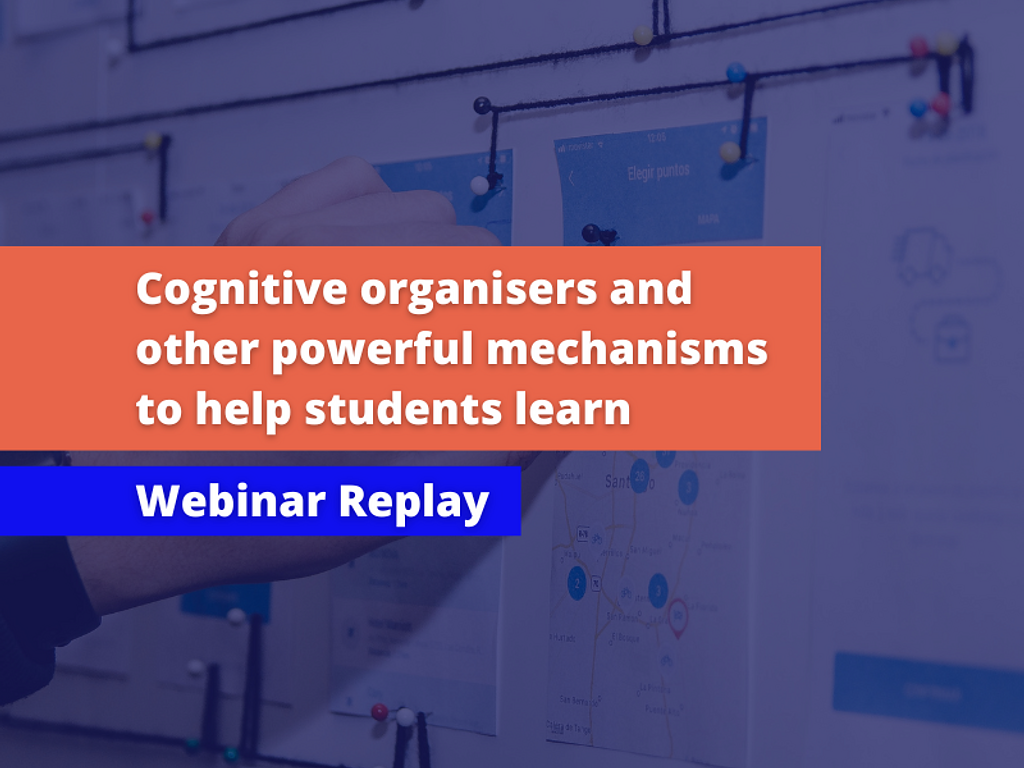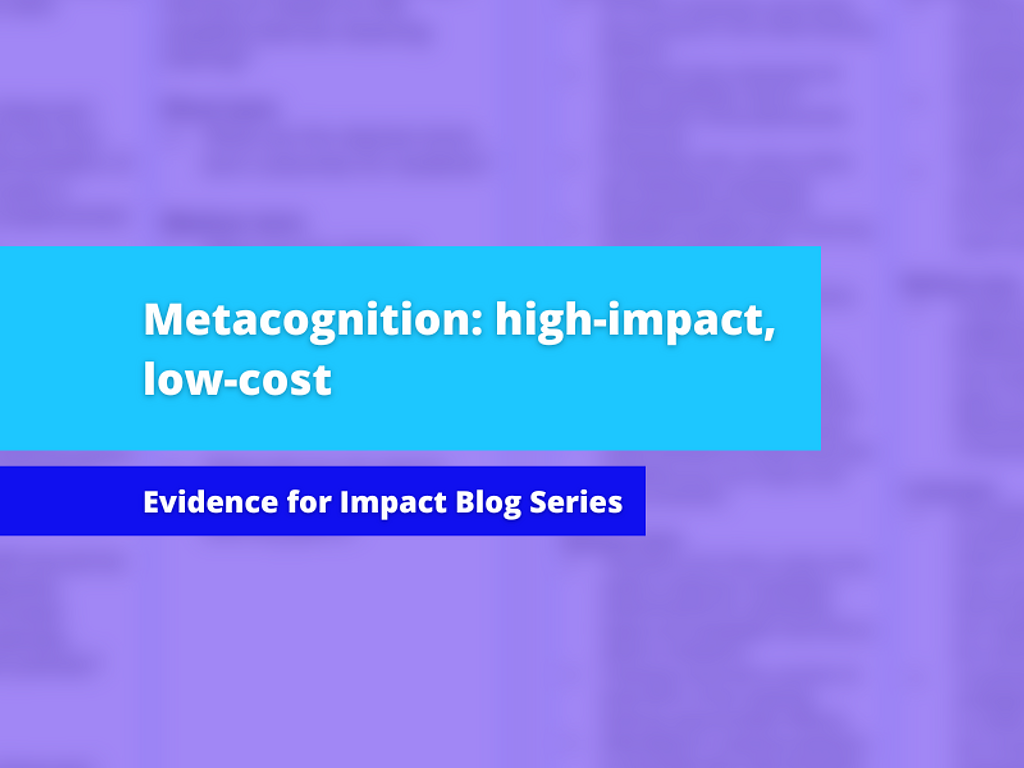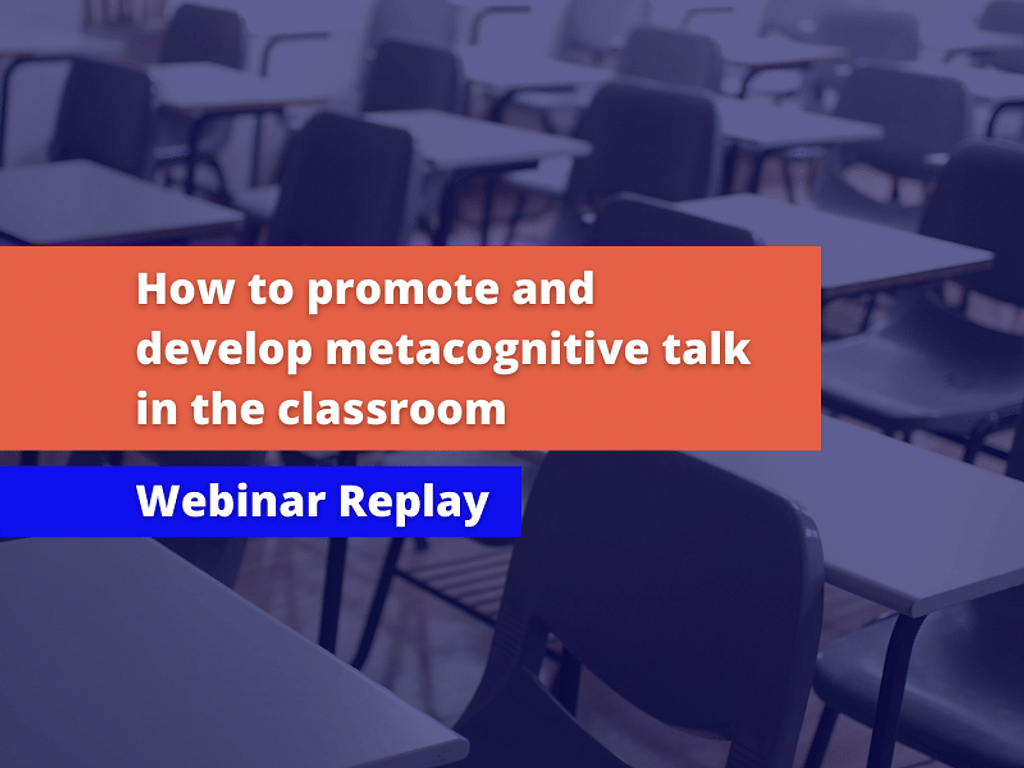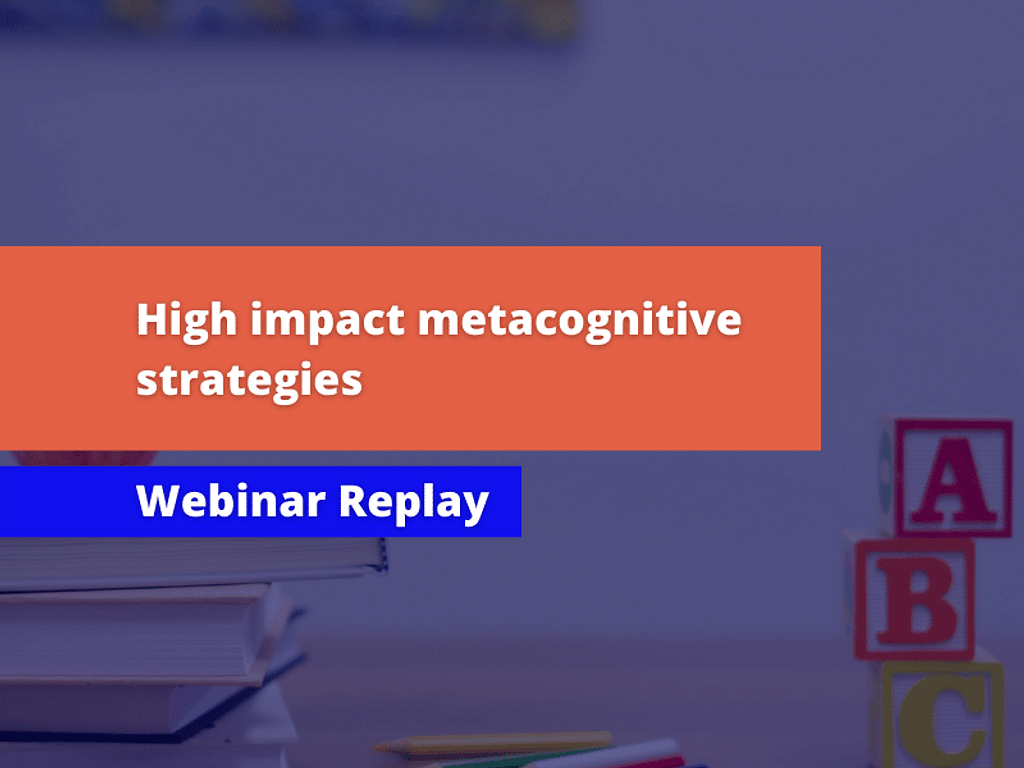Evidence for Learning: Metacognition and self‑regulated learning
Metacognition and self‑regulated learning
Download the Recommendations Poster
Uploaded: • 41.8 KB - pdfFirst Edition
Published
School Phase
Secondary, Primary
This Guidance Report reviews the best available research to offer school leaders and teachers seven recommendations to support schools to teach metacognition and self-regulated learning.
Evidence from our Teaching & Learning Toolkit suggests that the use of metacognition and self-regulation can lead to learning gains of +7 months over the course of a year, when used well. Nonetheless, it can seem an elusive topic.
On a very basic level, it’s about students’ ability to monitor, direct and review their learning.
Effective metacognitive strategies get learners to think about their own learning more explicitly, usually by teaching them to set goals, and monitor and evaluate their own academic progress.
We’ve produced this Guidance Report to help debunk the myths around metacognition, as well as providing seven clear and actionable recommendations which we hope will support an evidence-informed approach to developing metacognition and self-regulated learners.
Recommendation 1: Teachers should acquire the professional understanding and skills to develop their students’ metacognitive knowledge
Recommendation 2: Explicitly teach students metacognitive strategies, including how to plan, monitor, and evaluate their learning
Recommendation 3: Model your own thinking to help students develop their metacognitive and cognitive skills
Recommendation 4: Set an appropriate level of challenge to develop students’ self-regulation and metacognition
Recommendation 5: Promote and develop metacognitive talk in the classroom
Recommendation 6: Explicitly teach students how to organise, and effectively manage their learning independently
Recommendation 7: Schools should support teachers to develop their knowledge of these approaches and expect them to be applied appropriately
Evidence for Learning has produced another Guidance Report Putting Evidence to Work: A School’s Guide to Implementation which can be used as a guide as you plan to implement changes in your school relating to metacognition and self-regulation.
Implementation can be described as a series of stages relating to thinking about, preparing for, delivering, and sustaining change. The section Acting on the evidence, suggests a range of strategies that you might find helpful in planning, structuring and delivering a whole‑school approach to metacognition and self-regulated learning.
Watch this short introductory video on the seven recommendations in the Guidance Report.
This Guidance Report and supporting materials are licensed under a Creative Commons licence as outlined below. Permission may be granted for derivatives, please contact Evidence for Learning for more information.
This work is licensed under a Creative Commons Attribution-NonCommercial-NoDerivatives 4.0 International Licence.
Download the Guidance Report
Uploaded: • 698.4 KB - pdfDownload the Recommendations Poster
Uploaded: • 41.8 KB - pdf
Webinars


Blog


Webinars


Webinars
